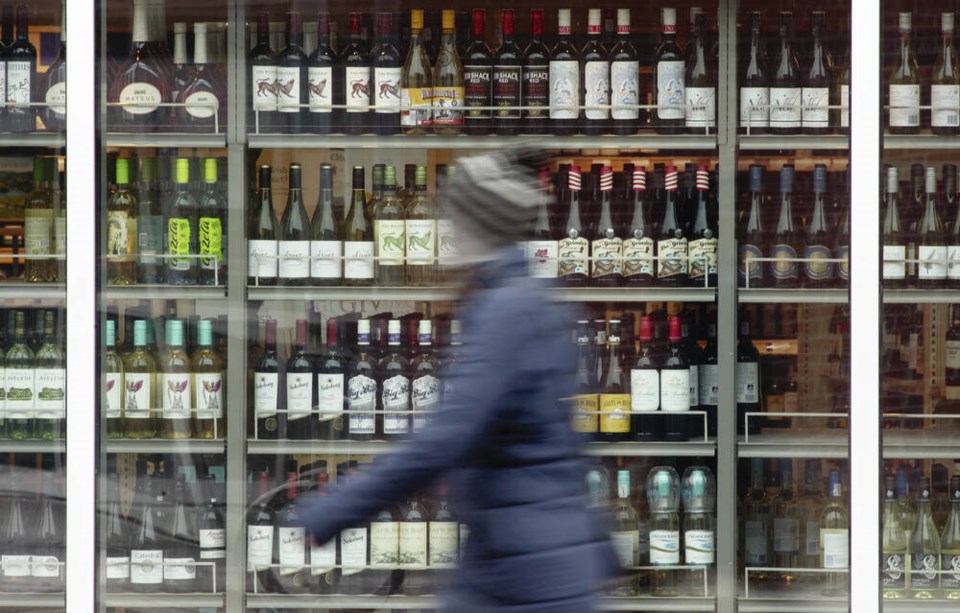Peering out the window, I had to admit the Rudolph the Red Nosed Reindeer lawn ornament looked Christmasy in all that new-fallen snow. A week late, but still Christmasy.
But hold on: We don’t have a Rudolph lawn ornament.
I opened the front door. “Buck,” I said, “what’s with the red nose?”
“I might have had too much to drink,” he slurred, wobbling slightly in the wind. Except there was no wind.
“And I might be starting to lose my hair,” I replied. “You’re hammered.”
“I love you, man,” he said by way of confirmation. Then he tipped over — whump! — his antlers snagging some Christmas lights on the way down. With his hooves sticking up like that, he looked less festive than vandalized.
Well, this was new. Buck has his faults — razing my garden, grazing in my fridge, moaning creepily while watching wildlife documentaries on Discovery (“the porn channel,” he calls it) — but never has he been much of a drinker. Until now.
Actually, you could say that of a lot of people. A couple of weeks ago, the University of Victoria’s Canadian Institute for Substance Use Research released a study showing British Columbians drank more alcohol during the first year of the COVID-19 pandemic than in each of the previous 20 years.
The study, based on alcohol sales data, estimated our intake from April 1, 2020 to March 31, 2021 worked out to 9.32 litres of pure alcohol for every person aged over 15 in the province, the equivalent of 547 cans of five per cent beer or 104 bottles of 12 per cent wine.
As the TC’s Andrew Duffy reported at the time, we Vancouver Islanders were particularly thirsty. Our alcohol consumption was 11.54 litres per person. By my calculations, that’s 677 drinks each — or, as you call it, your standard New Year’s Eve party.
Funny thing, New Year’s. It’s the night dedicated to staying up late* doing to excess those things that you promise you’re going to stop doing in the morning. (*During the pandemic, 9 p.m. qualifies as late.)
How did that strategy work out for you this year? Did you actually live up to your promise and shed the COVID 19 you gained during 2020, or did all that alcohol just make your jeans shrink some more in 2021?
This is the problem. If Thanksgiving is about being grateful for what we have and who we are, New Year’s resolutions are about feeling bad about what we don’t and who we aren’t.
Yet, according to a report in Psychology Today, one in five of us will have bailed on our resolutions just one week into January, our determination having disappeared like the screw top from your second wine bottle.
Another study suggested that ultimately, just eight per cent of us meet our New Year’s goals. That just leaves us feeling worse, which makes it even harder to escape the hole we have dug. Resolutions are recipes for disaster — one part hope, two parts regret — that more often than not leave us with a bad taste in our mouths.
But what to do? Note the story by the Times Colonist’s Roxanne Egan-Elliott this week in which UVic neuroscientist Olav Krigolson spoke of the need to keep our pandemic-fatigued brains healthy by getting enough sleep, exercising, eating properly and maintaining social connection.
“Right now, the worst thing you can do, for instance, would be to not exercise at all, sit on your couch, order in … and then grab a bottle of your favourite wine,” Krigolson said. “I know that’s what we all think we want to do, but those are all things that will put you in a more negative brain space.”
I considered that, then opened the front door.
“Olav Krigolson says you should stop drinking so much,” I told Buck, whose red nose glowed dully from under a blanket of snow. “It will make it easier to cope with all the stress.”
“Sure,” came Buck’s muffled reply. “First thing tomorrow morning.”



